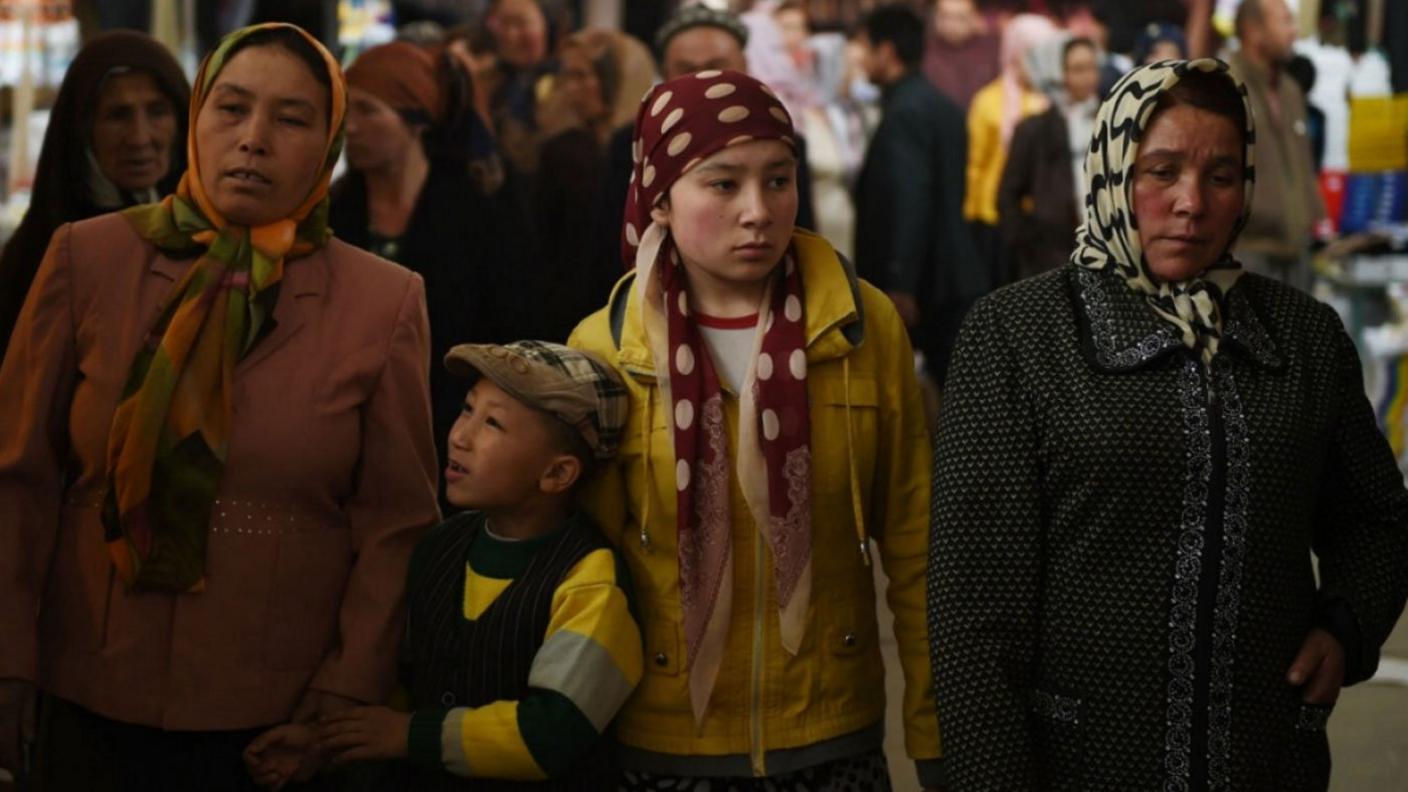Chinese police to track cars in Xinjiang in terror crackdown
- Published
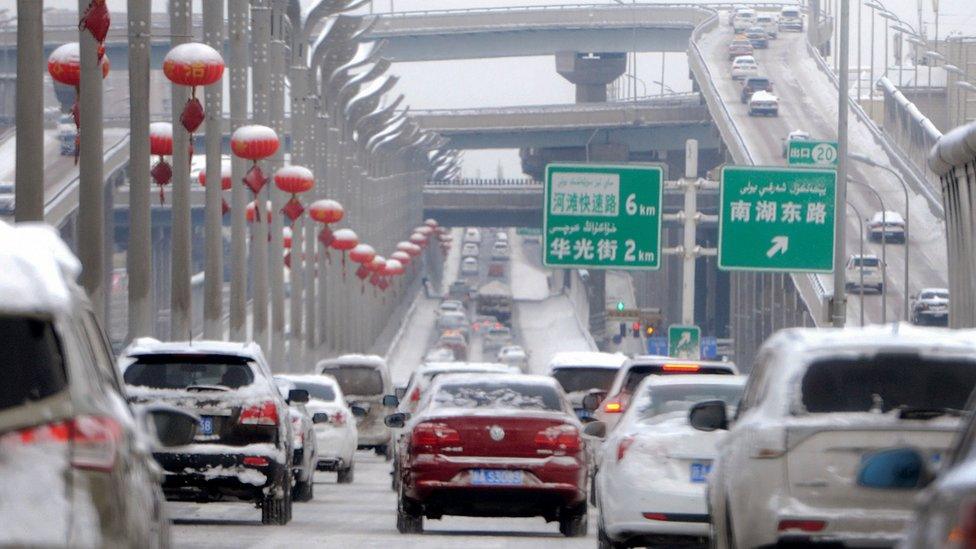
Vehicles are to be tracked using China's homegrown satellite navigation system
Chinese authorities in part of the western Xinjiang region have ordered all vehicles to be installed with satellite tracking devices as part of a crackdown on terrorism.
The government wants an end to sporadic attacks in the province, which it blames on Islamist militants.
A police statement said cars are the main means of transport for terrorists.
Drivers in the Bayingol area who refuse to install the system will not be allowed to buy fuel.
Xinjiang has seen a series of bombings and knife attacks over recent years, which the government blames on separatist elements of the region's large Muslim Uighur population.
Rights groups say the violence is due to the tight controls by the government on Uighurs' religion and culture.
The government denies any repression.
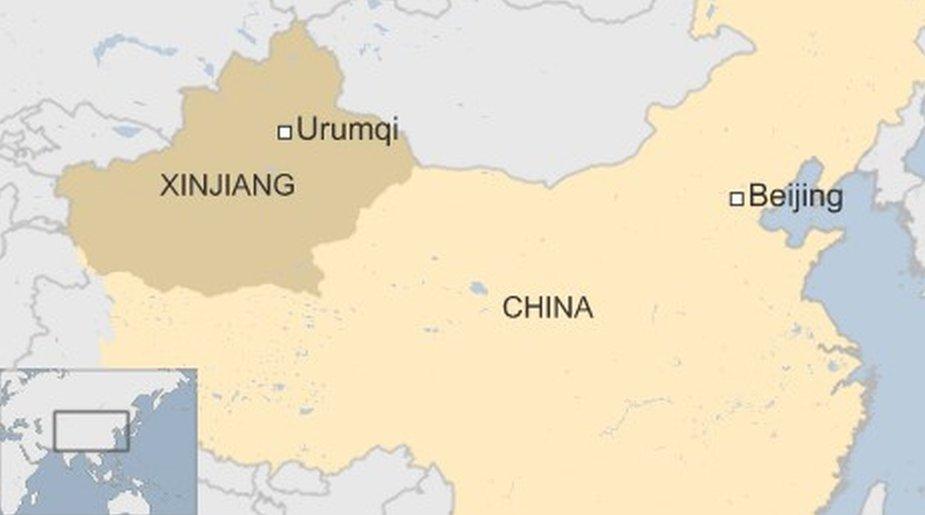
The vehicle-tracking programme will use China's homegrown Beidou satellite navigation system, which was launched to reduce reliance on the US's global positioning system (GPS).
It would also help car owners to find their vehicles quickly if they are stolen by terrorists, the state-run Global Times newspaper said.
Security in the region has been further increased after five people were killed by three assailants in a knife attack last week.
The attackers were shot dead by police.
Security forces held an anti-terror rally on Saturday, parading hundreds of armed men through the streets of the regional capital Urumqi.
In June, Xinjiang police ordered residents to provide DNA samples and other biological data when applying for travel documents.
The move, which the government said was also to combat terrorism, was criticised by human rights groups.
- Published17 November 2016
- Published28 December 2016
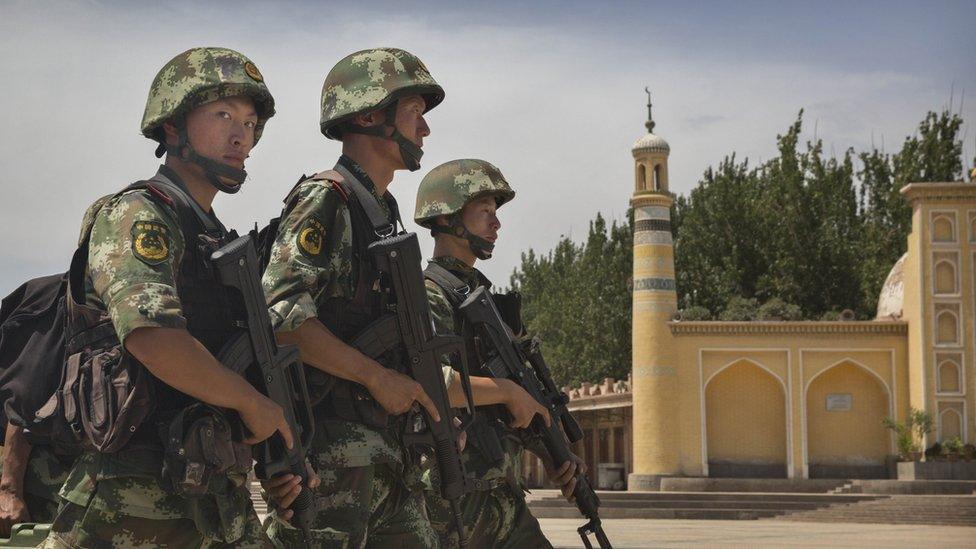
- Published15 February 2017
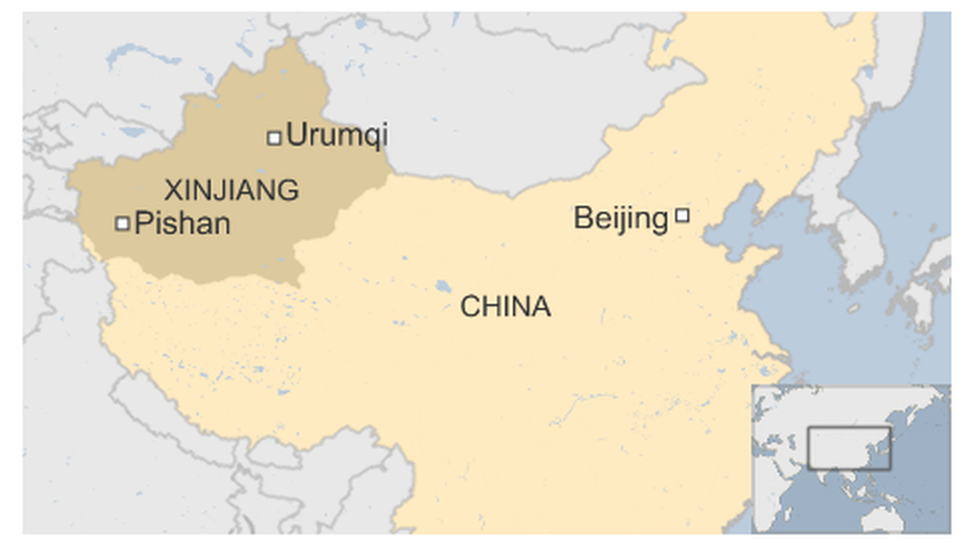
- Published8 July 2016
